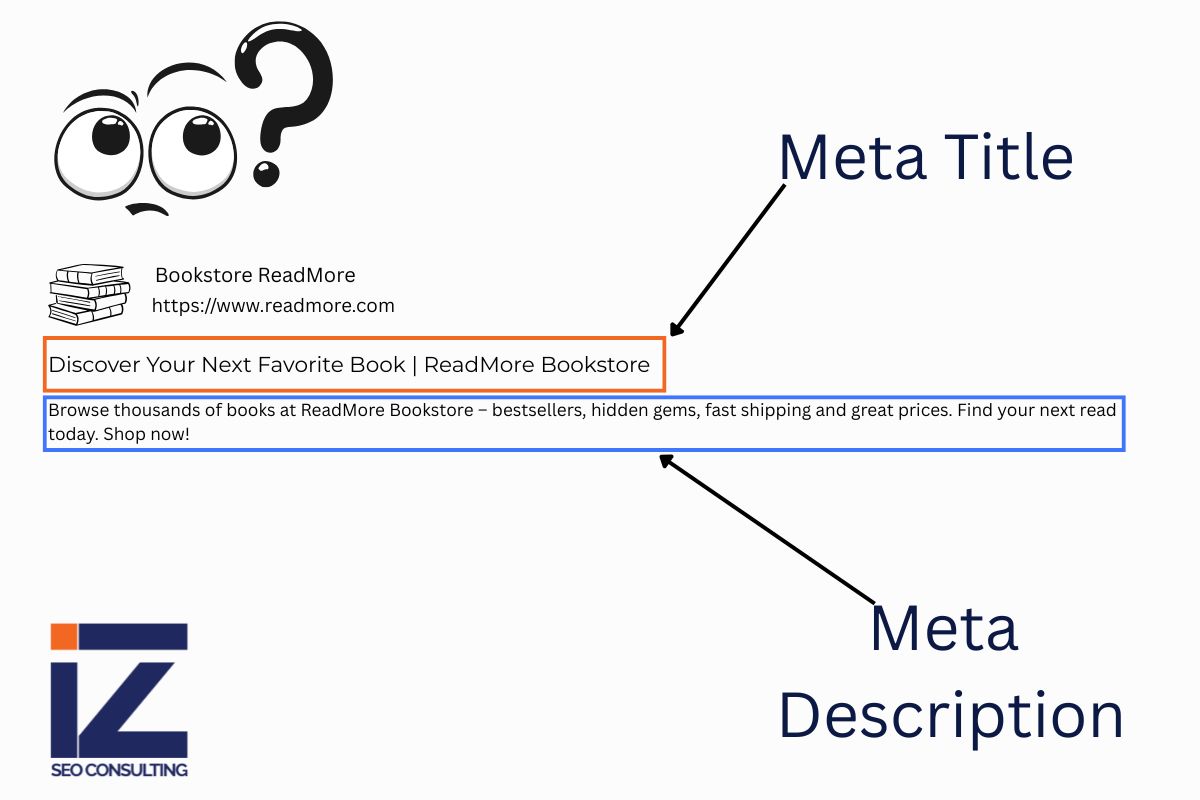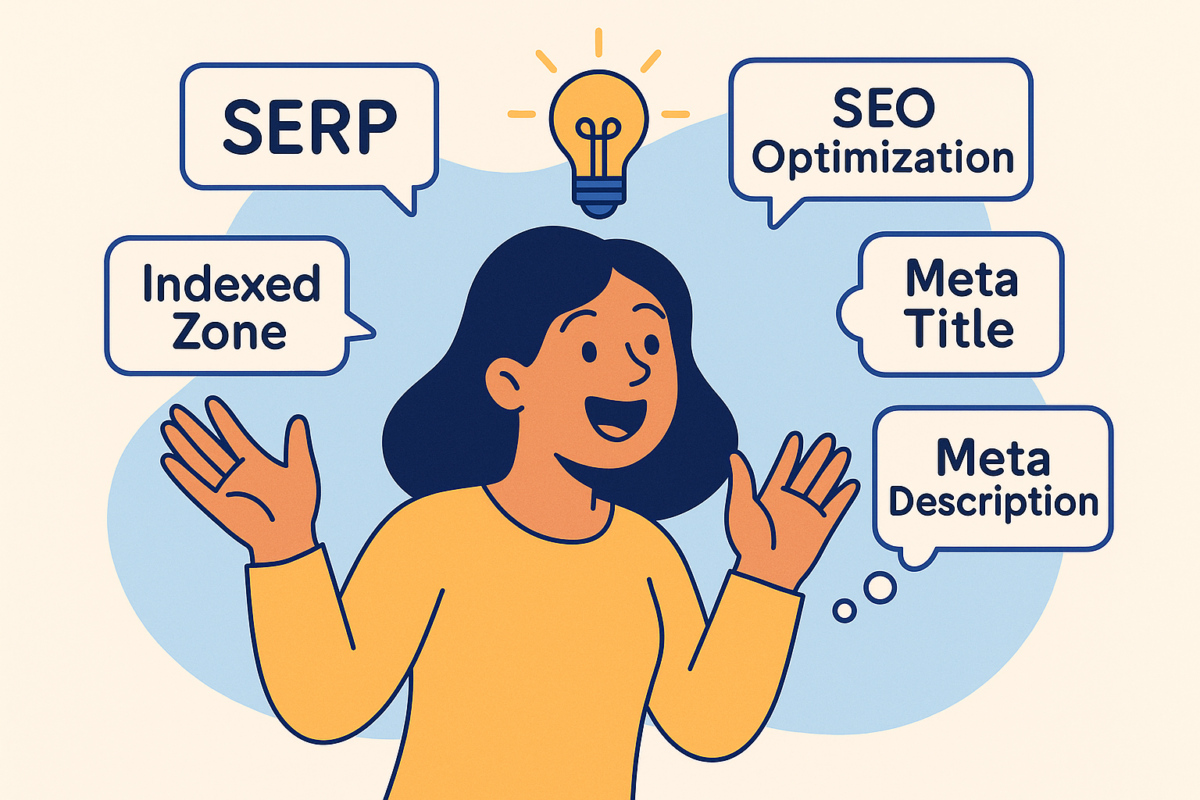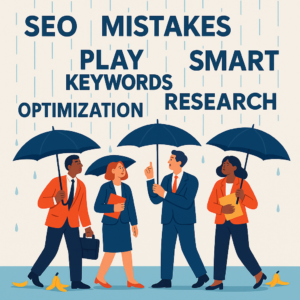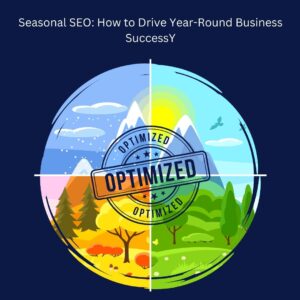Some consider modern SEO to be overwhelming. The good news is that with some simple changes to your content, your work can become more effective. Among the top SEO fundamentals are meta descriptions and meta titles. These descriptions are short, and while they may not seem important, they help both search engines and users understand the content of a webpage. Let Indexed Zone SEO walk you through the benefits of meta descriptions and title tags for SEO and how they help you.

What Is a Meta Title?
What is a Meta Title?
A meta title is simply a title for a webpage, and it is an HTML element. This title appears in 3 main places:
- As the headline that can be clicked in the search engine results pages.
- At the top of the web browser in the browser tabs.
- When a link is shared on social media, the meta title will appear.
Meta titles provide information about page content as well as prompt users to click.
What Is a Meta Description?
It is a short summary about a web page, which is located just under the meta title in the SERPs. While it doesn’t have a direct influence on-page ranking, it does affect user engagement and click-through rate. You could think of it as a sales pitch for the page; it helps sell your content before the user even clicks.

And yes, SEO terminology can be confusing at times. Hopefully, we explained enough SEO titles, and you have a better understanding of meta titles and meta descriptions. Now, let’s get to the point. You probably want to experience the benefits of title and meta description optimization.
Benefits of title and meta description optimization
- First impressions – Your meta title and description are probably the first thing a potential visitor sees. With an informative and clear snippet, you are likely to get more clicks.
- Better Click through Rate (CTR) – Clicks can be impacted by the description and title of the page. Better CTR can help rankings due to relevance signals.
- Better ranking signals – Rank signals come from the meta title and not the description. Strong SEO title, meta, and description, along with optimized title tags, tell search engines the topic of your page, allowing you to rank for more terms. Because of this, you should make optimizing the title and meta description for SEO a top priority.
- Benefits of search engines and users – Meta description and title help search engines to better index your page and users to find what they are looking for.
Meta Title Tips
- 60 characters or less
- Important keywords at the beginning
- Each page should have a unique title
- If applicable, include the brand name, especially on the homepage and product pages
- No keyword stuffing

Best Practices for Writing Meta Descriptions
- Active voice and less passive voice. Call to action is a must
- Stay on point with the primary keyword
- Keep it Unique and relevant
- Page content must be relevant
Optimizing your titles and meta descriptions is a must for search engine results and user experience.
Common Mistakes to Avoid
- We’ve discussed the benefits and how to do it with seo results, now let’s talk about how not to do it.
- Meta descriptions and titles are repeating on the same page.
- Writing vague.
- Going over the limit.
- Missing the point.
- Using spammy keywords.
The Role of Meta in SEO
Despite how advanced the technology keeping search engine algorithms running gets, the factors involved in ranking are still fairly straightforward. For example, the meta title itself will still count as a factor in ranking while the meta description still will impact click through rates as well as user experience, both of which are still very important. In combination, the two of these impact the relay of your webpage’s content and the intent of the user searching for the keywords. This will still be important in an era of voic and AI search. Meta tag descriptions and titles will still need to be relevant, as well as clear.
FAQ – Frequently Asked Questions
To write a good title for SEO, you need to identify the keyword and write an appropriate title using action words, or questions, to grab attention. The title should not include too many keywords and should be sensible and interesting. The title should first be directed towards the human reader, and then the search engine. The title should also communicate a sense of urgency or add an important value to the search, like including the words, ‘free tips’ or ‘ultimate guide’ in the title.
A good example of meta description for SEO is: it should be between 150 and 160 characters. Define what your page is about, and include the keywords. The description should include something that will get the users to take action, like ‘learn more’ or ‘try this’. Include something that differentiates this page from the rest, like including a unique solution. An example of a good SEO title is: Learn the 10 best SEO tools to enhance the traffic and ranking of your site. Easy to use, effective, and suitable for beginners.
An important consideration when writing a meta description is that:
It gives a clear description of what the page is about.
It helps the searcher decide if they want to click through to the site.
It can boost CTR (Click-Through Rate) which is a positive ranking factor in Google.
It helps streamline the user journey by managing expectations.
It can help search engines gauge relevance and quality.
Final Takeaway
You now know the difference between the SEO title and the meta description. However, understanding the impact of optimizing your titles and meta descriptions on your site is much more important. They are vital in determining the ranking of your site and in driving relevant traffic to your site. So, optimize your meta titles and descriptions, making them succinct and engaging. Most importantly, use relevant keywords. This will increase the likelihood of your content performing (and ranking) well on search engines and will increase its value to the user.



